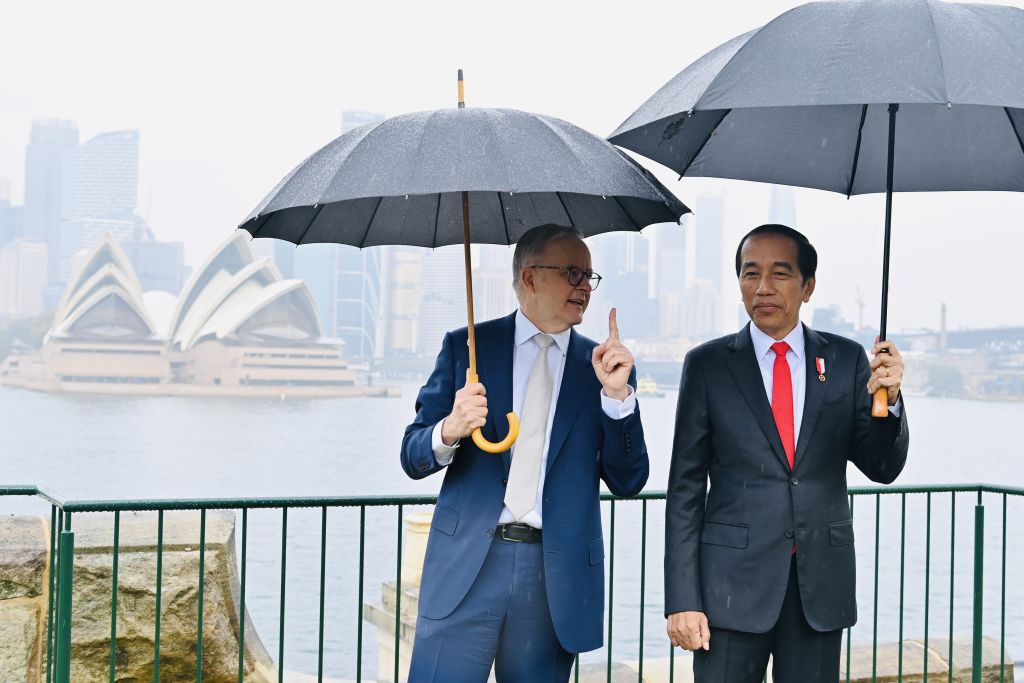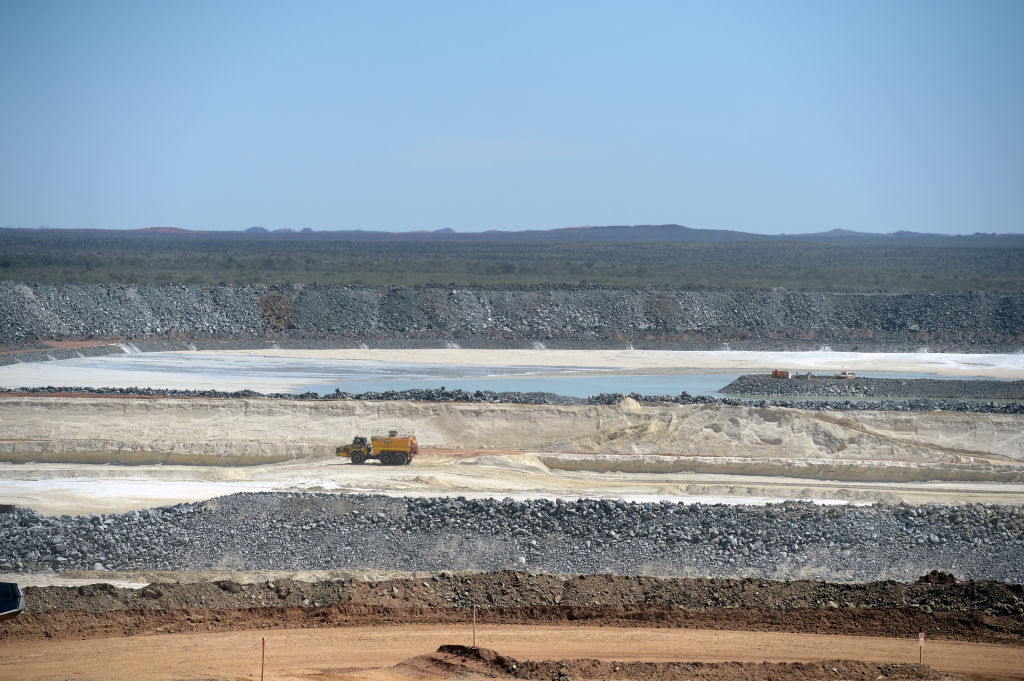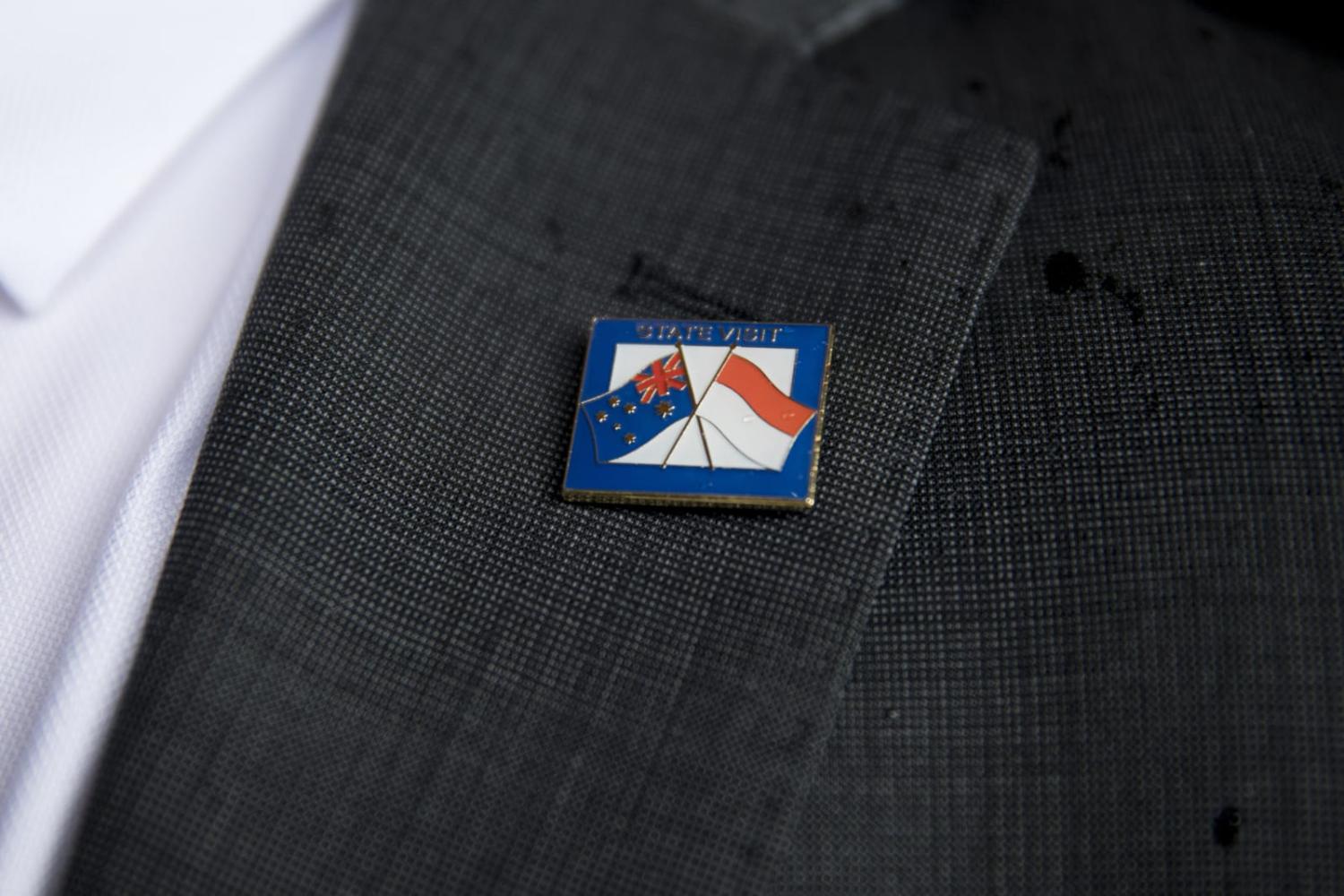Trading places
It’s now half a century since Australia and Indonesia signed a bilateral investment agreement leading to serial government initiatives mostly on the Australian side to increase economic integration. But the fundamental reality has been that the two countries were largely competitive resource or commodity exporting economies – with coal mining for electricity being the principal example of this.
As a result, there are few more recurring phrases in the lexicon of bilateral relations than that the business relationship is “underdone”. And that line has inevitably been rolled out again this week as Prime Minister Anthony Albanese met President Joko Widodo for the annual leadership meeting.
But despite a number of false starts there is now some clear evidence of greater economic complementarity in the relationship that should provide the much sought ballast for when the strong diplomatic links are periodically side tracked by domestic political forces. And there is some sign of success breeding success. The power balance is also changing as Indonesia tracks towards overtaking Australia’s economic size even in nominal terms in just a few years.
Two years ago, the Department of Foreign Affairs and Trade Blueprint for Trade and Investment with Indonesia targeted health and aged care; education and skills; agriculture and food; and resources and energy services as immediate sectoral opportunities emerging from the then new bilateral economic cooperation agreement.*
Education was the pacesetter at this week’s annual summit with three more universities – Western Sydney, Deakin and Central Queensland – following Monash’s pioneering Indonesian campus. The new universities are expanding beyond Jakarta in line with Indonesia’s regional development priorities. Some new initiatives in vocational education should be next.
Healthcare also got notable attention in the leaders’ comments. This reflected the well-timed launch last month of the first hospital construction by Aspen Medical in a much bigger collaboration with West Java on broader healthcare facilities, which will save foreign exchange from Indonesians going abroad for healthcare. It was well timed as much for the fact that the other significant Australian healthcare venture in Indonesia established by Ramsay Health Care is reportedly up for sale again.
There’s been less headline grabbing action in agriculture. Indonesia is already a large market for Australian exports and there is a longstanding example of complementarity in the joint venture Interflour Group, which processes Australian wheat into flour for noodles in Indonesia and elsewhere in the region.
So that leaves resources and energy which has been a bigger focus this week with Widodo continuing his push for access to Australian lithium reserves to underpin Indonesia’s electric car manufacturing ambitions. But despite the diplomatic language and the obvious shared interest in dealing with climate change, the landscape for cooperation still appears complicated.

Paper trails
Albanese claimed renewable energy cooperation was “an incredible opportunity for us going forward” after talking with Widodo. But there seemed to be only modest progress on last year’s bonhomie between the two leaders at the Group of 20 summit when Widodo made an audacious bid for an exclusive deal declaring:
I ask Prime Minister Albanese please bring the lithium only to Indonesia. So together, let’s do this added value investment in Indonesia.
There would appear to be an obvious complementarity in Australian lithium being combined with Indonesian nickel for a battery manufacturing industry to power the electric vehicles needed to decarbonise the world’s fourth most populous country. And Indonesian officials have repeated the case during visits to Australia this year.
But the main action this week has been at the margins with the Western Australia government signing an agreement on minerals cooperation with the Indonesian Chamber of Commerce and Industry. At the same time Australia revealed $50 million from Labor’s election campaign promise of a $200 million climate infrastructure partnership would be spent supporting small enterprises in the energy transition sector. The first seems like a placeholder while national cooperation is negotiated. The second is a good neighbourly response to the aid sector and environmentalist criticism of the Albanese government for not putting money into the G20 Just Energy Transition Partnership in Indonesia last year. Indonesia requires special attention from Australia rather than participation in multilateral endeavour. But it doesn’t make any concession to Widodo’s quest for lithium.
The reality is that Labor has its own election commitments to add value to minerals including lithium as part of resuscitating manufacturing. The government has recently restated minerals and energy security commitments to countries ranging from Singapore to Japan. It also must be careful not to be caught by Biden administration supply chain lawfare against China when Chinese companies are prominent foreign investors in Widodo’s push for downstream processing of Indonesia’s minerals.

Indeed, it is telling that the now voluminous paper trail of Albanese government documents about critical minerals generated since the G20 renewable energy backslapping with Widodo make virtually no reference to cooperation with Indonesia. The battery industry consultation paper says nothing about the country. The electric vehicle strategy paper has a passing reference to one Australian technology company that does work in the region. And the National Reconstruction Fund consultation paper specifically backs domestic processing of lithium for batteries and then production of batteries.
Then the recently released Critical Minerals Strategy which draws partly on this other work makes no reference to Indonesia despite paying heed to collaboration with seven other countries, including India. It also talks up engagement with various multilateral agencies including the Quadrilateral Security Dialogue and the United States-backed Indo-Pacific Economic Framework.
And this week’s Department of Industry, Science and Technology quarterly resources market update – which notes how critical minerals exports are on track to overtake thermal coal exports – nevertheless pays virtually no attention to Indonesian battery ambitions in its special discussion of critical minerals and batteries. Strikingly, in a throwback to the past, Indonesia is discussed more as a raw materials export competitor in relation to the impact of its efforts to limit exports of unprocessed minerals (see more below).
Indeed, Australia’s approach is best captured in the Critical Minerals Strategy which declares with Widodo-style economic nationalist rhetoric:
We will move up the critical minerals value chain and increase Australia’s footprint in downstream processing. We will make high-value products that build new industries.
So much for Albanese’s “incredible opportunity” with his warm “friend” from Indonesia.
Money talks
Indonesia is not without its own recent practical difficulties managing its supply chains to create a domestic electric car industry – which at least might provide for some bilateral common understanding of domestic political pressures.
In the lead up to this week’s leaders’ meeting, Widodo’s government extended a moratorium on implementing bans on exports of partly processed minerals such as copper, lead and zinc, while only proceeding with action against bauxite exports which it wants kept for domestic aluminium production. This broader action against concentrate exports was meant to be an extension of the initial controversial ban on nickel exports in 2019.
The government has justified this, in effect, pull back from economic nationalism on the basis that smelters have not yet been built to process the concentrate domestically for use in manufacturing. But it is more likely to reflect the government budget need for immediate revenue from export receipts rather than waiting for the long-term benefits of domestic processing for manufacturing. This is a dilemma Australia also faces as it tries to deal with demands for gas reservation.
Indonesian resources lawyer Bill Sullivan says in a recent note to clients that in the run-up to next year’s elections the Widodo government would be “very uncomfortable indeed” to be seen to be failing to enforce its policies about domestic processing of minerals.
Meanwhile, the International Monetary Fund has used its otherwise mostly complimentary latest consultation report on Indonesia to urge an end to export bans, especially without proper cost benefit analysis.
But before the Albanese government sees this as some sort of relief from Widodo’s pressure to add Australian lithium to his battery supply chain, the new-look more inclusive IMF wilts remarkably fast in taking on one of its rising emerging market members. It says it welcomes Indonesia’s ambitions “to increase value added in exports, attract foreign direct investment, and facilitate transfer of skills and technology”. And it concedes that there has been increased foreign investment in Indonesia to process raw nickel and increased export value due to the interventions.
Power shifts
This tussle over lithium is a case study in how the balance of power has shifted so much from when Australia was a bigger economy than Indonesia by any measure and development aid was a more significant part of the economic diplomacy relationship.
The obvious answer is for Indonesian companies to quietly invest in lithium mining here much the same way Japanese companies invested in mines rather than companies in the sensitive post-Pacific War years. But they would want clarity that lithium could be exported to Indonesia rather than subjected to some form of reservation for a putative Australian battery industry or subject to American definitions of acceptable supply chains.
The Lowy Institute’s Hilman Palaon explains how Widodo’s electric vehicle legacy ambitions slot into Indonesia’s broader economic development trajectory which is central to the DFAT Blueprint ambitions for greater complementarity.
And this will require Australian politicians to explain the changed power dynamics when public opinion revealed in the regular Lowy Poll results shows that sentiment towards Indonesian is still only lukewarm, as Ryan Neelam has detailed.
And on that note despite the assertions of personal warmth, explaining the new Indonesia didn’t rate highly as Albanese burst forth in radio and television interviews on Wednesday after this week’s annual leaders’ meeting. Out of five interviews, Australia’s closest Asian neighbour was briefly mentioned in two as more democratic than China and a fast-growing economy. Cricket rivalry with England consumed more air-time in all five.
* Greg Earl edited and contributed to A Blueprint for Trade and Investment with Indonesia.

